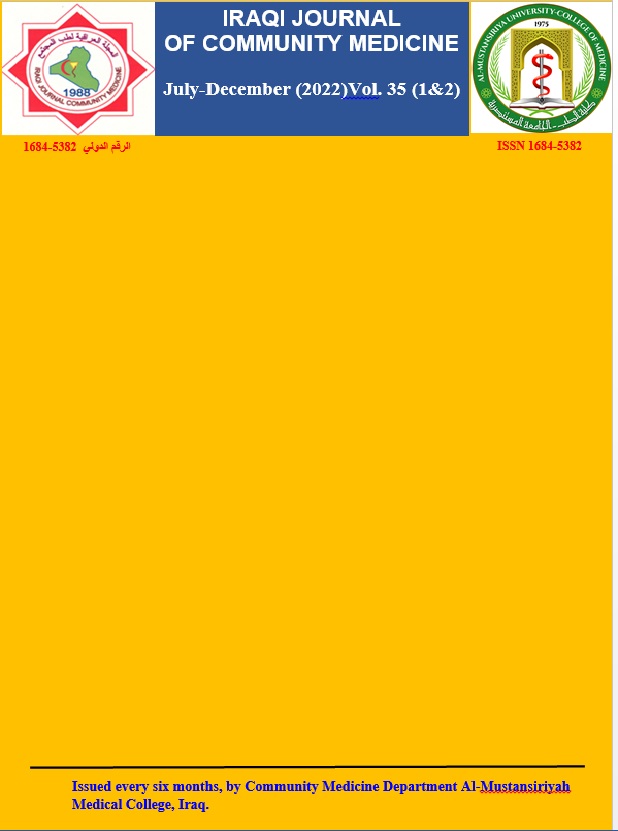Abstract
Background:
Aim of the study: To assess the knowledge of undergraduate medical and non-medical students about the risk factors and modes of HIV transmission and to determine the effect of the curriculum applied in the colleges of medicine regarding HIV/AIDS on the level of knowledge of medical students compared with that of non-medical.
Methods: Questionnaire survey using structured, self-administered questionnaire consisted of 38 closed-ended questions, concerning the knowledge of risk factors and modes of HIV transmission was distributed to 400 undergraduate students from Colleges of Medicine, Science and Arts in Al-Mustansirya University during the period from the 1st of October 2004 through May 2005.
Results: The study showed that 73.5% of medical and 59.5% of non- medical students had good and 21.5% of medical and 27% of non-medical students had fair knowledge scores regarding modes of HIV transmission .While 96% of medical and 83.5% of non- medical students had good and 2.5% of medical and 15.5% of non-medical students had fair knowledge scores regarding risk factors for HIV infection.
Conclusion: Generally, students showed good knowledge about risk factors and modes of HIV transmission, and the level of medical students\' knowledge was significantly higher than that of non-medical, however some gaps in their knowledge still exist and ignorance of some basic facts on HIV transmission was observed.
Aim of the study: To assess the knowledge of undergraduate medical and non-medical students about the risk factors and modes of HIV transmission and to determine the effect of the curriculum applied in the colleges of medicine regarding HIV/AIDS on the level of knowledge of medical students compared with that of non-medical.
Methods: Questionnaire survey using structured, self-administered questionnaire consisted of 38 closed-ended questions, concerning the knowledge of risk factors and modes of HIV transmission was distributed to 400 undergraduate students from Colleges of Medicine, Science and Arts in Al-Mustansirya University during the period from the 1st of October 2004 through May 2005.
Results: The study showed that 73.5% of medical and 59.5% of non- medical students had good and 21.5% of medical and 27% of non-medical students had fair knowledge scores regarding modes of HIV transmission .While 96% of medical and 83.5% of non- medical students had good and 2.5% of medical and 15.5% of non-medical students had fair knowledge scores regarding risk factors for HIV infection.
Conclusion: Generally, students showed good knowledge about risk factors and modes of HIV transmission, and the level of medical students\' knowledge was significantly higher than that of non-medical, however some gaps in their knowledge still exist and ignorance of some basic facts on HIV transmission was observed.
